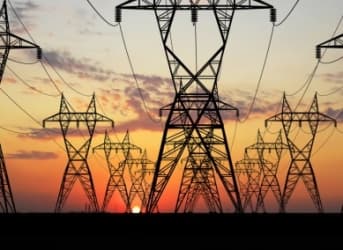Pundits fill op-ed pages with letters of advice. "Dear Janet, about that last Fed meeting..." As electric company shareholders we always meant to write one of those letters. And as the Talmudic sage Rabbi Hillel once asked, "If not now, when?" So here goes.
Dear Jane/John CEO:
The party is over, again. Remember the diversification-for-growth bash? Utilities bought banks, insurance companies, real estate, oil wells and at least one tilapia fish farm, spent -hen- processing plant and gold mine. In the midst of the euphoria, legendary banker Carl Seligson asked, “How can you manage businesses that you don’t know anything about when you can’t manage businesses that you know about?” That party ended in tears. The boss ordered, “Back to basics”. That meant, “Sell more electricity”.
In the 1990s, bedazzled by dreams of rapid growth and high return (think Worldcom, Enron and Global Crossing), your new CEO invested in unregulated electric generators, encouraged by over-optimistic forward price curves and convinced that he could win a high stakes game of “chicken” — the other guy would swerve first, not build his power plant, and leave you to rake in the profits. “Not diversification”, the boss declared, “just a different way of producing and selling electricity”. Unfortunately, high risk is the flip side of high return and few firms can achieve double digit growth operating in a market growing at a single digit pace. Neither expected prices nor sales materialized. The over-leveraged generating companies tanked. More losses. Related: Statoil Greenlights Unmanned Platform in North Sea
Back to basics. Bulk up regulated assets. "Grow the rate base" the boss said. The company built but customers didn't come in the sense of buying more electricity, but they paid for the extra investment anyway. Regulation has advantages.
Then you heard about the yieldco with its simple three part formula. First, spin assets into a new, high dividend paying entity, the yieldco. Then regularly "drop" assets into it from the corporate parent to provide the illusion of growth. Finally, watch yield- hungry investors drive up valuations. Yieldcos lost their allure when fuel prices fell and the Fed declared that interest rates would rise. Try something else?
In the spirit of the times, you moved into renewables, a sensible idea, except the more renewables you built the less you needed your old facilities. Sort of like a snake eating its tail? (Did you then depreciate older plant faster to reflects it shortened life expectancy?) Customers now have access to economical alternative sources of electricity. They might not need your facilities as much as before. Related: Lithium: The Bright Spot For The Commodity Sector
Utility financial trends during the past decade certainly do not bode well — debt up 60 percent, free cash flow negative every year and sales flat. In the past utilities rarely generated enough funds internally to pay for capital investment, dividends and redemption of debt. They sold securities to fill the gap without difficulty because they could present investors a future of perpetually rising sales to customers who had to buy from them. Now customers can defect (watch the Nevada casinos). Sales have flattened. Once investors lose confidence in the company’s ability to repay debt, they will stop financing it. Time for another change in course?
Companies in weak markets that are chronically unable to finance cash needs from operations prune spending or dividends or both. Sorry, we had to get that off our chests. Just because industry financial policy has remained unchanged since Samuel Insull invented it does not mean that can continue forever. The Pennsylvania Railroad paid a dividend for over a hundred years until it didn’t. As an alternative to growing the rate base how about serving the customer more efficiently with existing plant? That strategy would lower the risk inherent in capital investment that could easily turn into tomorrow’s stranded asset. Focus on what the customer wants, not on what builds rate base. Try to convince the regulator that such a policy deserves a reward, but even if none were forthcoming, a policy of risk reduction and capital preservation makes sense. Related: Geothermal Energy Could Grow Six Fold
Okay, you think we’re two old cranks. Your bankers never told you this, the ratings agency hasn’t downgraded your bonds and you’ll never convince your board of directors. So, let’s add really stockholder- friendly advice. Sell the company now for top dollar. Back in the nineties, when the big British generators realized that the market was souring, they pushed up prices and sold out to the suckers at the top of the market. Right now, yield starved investors, infrastructure funds and utilities looking for “earnings accretive” growth -by-acquisition want properties. Sell now while your business still looks attractive and low interest rates make deals look good.
In sum, consider cutting dividends to a sustainable level based on real growth prospects and not what you view as an adequate return on a swollen rate base. As for capital spending, in a distributed, microgrid world, not only aging coal plants but also shiny new transmission lines may be “stranded”. Don’t fritter away scarce capital in a futile attempt to try to manufacture growth in a no-growth business. Let someone else struggle to do that.
Holiday greetings and send our b est to the spouse and kids.
Sincerely,
Bill and Leonard
By Leonard Hyman and William Tilles for Oilprice.com
More Top Reads From Oilprice.com:
- Colombia’s Oil Dreams Fall Short
- European Leaders Cry Foul Against Germany’s Support for Gas Pipeline
- Saudi Arabia Continues to Ramp Up Oil Output in Face of Market Glut


















